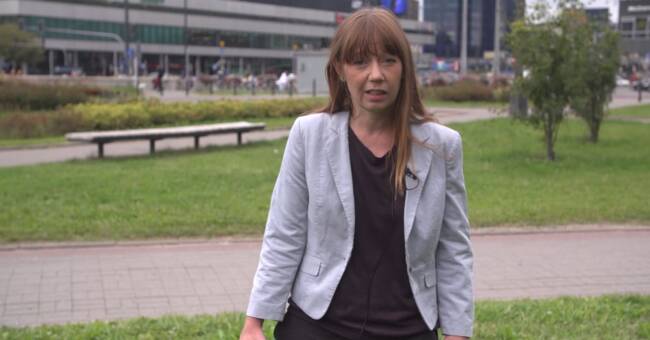It has now been a month since a group of 32 Afghans got stuck in no man's land between Poland and Belarus.
Poland, which considers itself a weapon in Belarus war against Poland and the EU refused to let them in and Belarus to take them back.
Since then, 3,500 people have arrived at the EU's external border this way.
Of these, Poland has managed to stop 2,000.
Several EU countries, together with Poland, accuse Belarus of cynically attracting with promises of a life in Europe, and of organizing transport all the way to the EU's borders in Lithuania, Latvia and Poland.
Photos, the migrants' own stories and advertisements on social media indicate that the information is correct.
Belarus's motive would be to avenge EU sanctions against the increasingly harsh dictatorship.
The people who are exploited come from many different countries - some are fleeing war and persecution in their home countries, while others are looking for work or a better life.
Now they are stuck in Europe's northernmost primeval forest, while the temperature is falling and politicians consider it a lost battle to give them the most necessary necessities such as water and warm clothes.
"Emergency" restricts transparency
Until September 2, human rights organizations could provide food, medicine and legal advice. Journalists were able to document how the situation for the stranded became increasingly difficult. But on September 2, Poland introduced an "emergency", a state most recently declared in 1981 when the risk of a Soviet invasion was considered high. Neither the darkest period of the corona pandemic nor any natural disasters have led to the introduction of these extreme restrictions on freedom of movement and harsh punishments for those who violate them.
Since the emergency was introduced, only scattered information has been leaked about what is now going on inside the border area.
The information that is available comes via emergency calls to human rights activists and relatives via text message or via social media.
These are frightening stories about how Polish border guards abuse to get them to return to Belarus and about how the Belarusian guards shoot at their feet to prevent them from doing so.
About how fruit from wild apples and rainwater is the only food and about icy baby feet in sandals.
People disappear without a trace in the forests
But it is worst for the relatives when the text message is silent.
More and more people are now disappearing without a trace in the forests.
Hiba Abo Doaimes and Shadi Altabash are originally from Syria but today live in Blekinge.
Their relatives - a family with three children aged 4, 6 and 9 - are somewhere in the woods.
It has been 12 days since the contact was broken and the anxiety is growing for the children, who were already ill after many days in difficult conditions.
In an interview with SVT, Polish Foreign Minister Paweł Jabłoński says that no migrants or refugees are on Polish territory.
According to the minister, they are all still on Belarusian soil and therefore Poland can not assist them.
But Hiba and Shadi's relatives, like many others at the border, have sent the coordinates of their positions and they show that they were last on the Polish side of the border.
Jabłoński further says that the measures they are taking must be tough because otherwise Lukashenko would declare himself the winner in this battle against Poland and against the entire European Union. It is cynical to press the EU with people as weapons, but the question is whether it will not be the Europeans who ultimately make the biggest loss when it comes to dismantling democracy and human rights.

